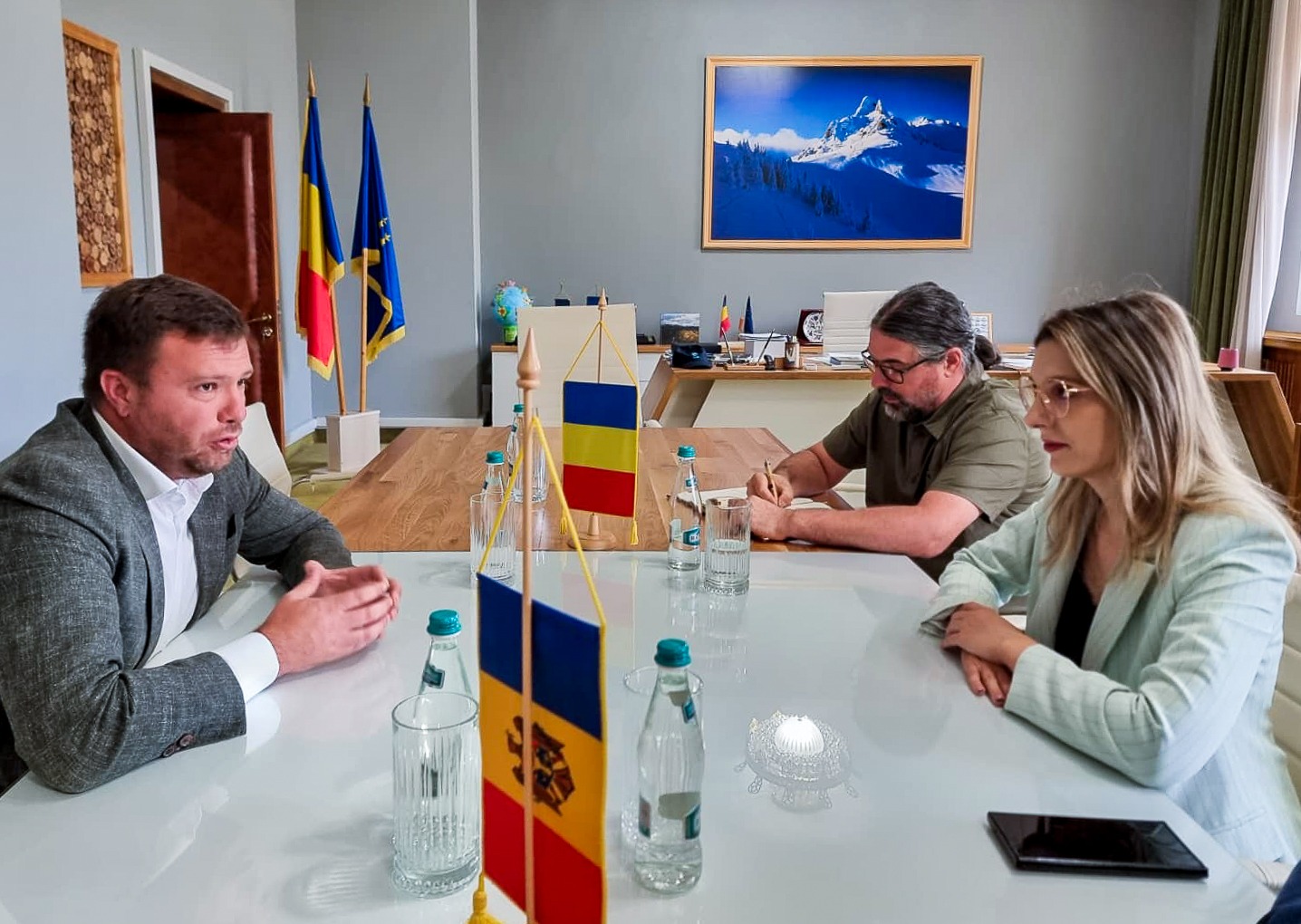
Environment Ministers of Romania, Moldova in Bucharest discuss cooperation for recycling, forests' protection, reducing food waste
Minister of Environment of Moldova Sergiu Lazarencu today had a working meeting in Bucharest with his Romanian counterpart, Diana Buzoianu, Minister of Environment, Waters, and Forests. The discussions focused on exchanging best practices and strengthening bilateral cooperation in the environmental protection field.
One of the main topics addressed was the Deposit Return System (DRS), already implemented in Romania. This system involves returning empty beverage containers—plastic bottles, glass, or aluminum cans—directly to stores, where consumers receive back the deposit paid at purchase. In the first six months of 2025, Romania achieved a remarkable 79-per cent collection rate, which prevents the accumulation of millions of tons of plastic on landfills. Moldova is set to implement this system starting from 2027, benefiting from Romania's experience and expertise to adapt the mechanism to local specifics.
Another subject on the agenda was the National Forest Inventory (NFI)—a scientific tool through which Romania periodically monitors the forests’ state, wood volume, afforested area and carbon storage level. The ministers agreed that Romanian specialists will provide Moldova with support in carrying out the first national forest inventory, considered essential for responsible environmental policies and forest fund’s protection.
The visit's agenda included a visit to the Food Bank of Romania, an institution that collects food products still within the consumption period, but which can no longer be sold due to damaged packaging, short expiration date, or overstocks. These products are subsequently distributed to social centers and canteens for vulnerable people.
Moldova already has a Food Bank and a legislative framework for reducing food waste, but the authorities consider the active involvement of producers and retailers a priority, so that more products reach those in need instead of being wasted.
“Romania's experience provides us with a solid model to build modern and functional systems for recycling, forests’ protection and combating food waste. Together, we can implement green policies that bring direct benefits to citizens and the environment,” concluded Sergiu Lazarencu.
Moldova to receive $2.113 million grant for modernizing medical rehabilitation services
Moldovan Education Ministry warns about so-called 'circular' on setting of information panels
Moldova's Superior Council of Prosecutors appoints Alexandru Machidon for Prosecutor General's office
PM says leadership must continue investing in tourism, promote Moldova as competitive destination
Nicolae Testemitanu Medical University of Moldova announces launch of contest on admission to residency
VIDEO // Protests organized by Shor group
President welcomes US and European leaders' efforts for achieving peace in Ukraine
DOC // Published in Official Journal. Moldova to have national crisis management system
Chief architect of central Moldova district prosecuted for corruption; anti-corruption officers raid more locations across country
Moldovan Labour Ministry launches help desk providing information on opening, work of family-type creches
Fourteen families from central Moldova to make their dwellings energy rehabilitation with European support
Moldova, Cyprus strengthen cooperation in context of EU Council Presidency, due to be held by Cyprus in 2026
Moldovan parliament speaker has meeting with delegation of BENELUX foreign affairs ministers
Moldova's National Statistics Bureau presents new final data of 2024 Census, provides details on population's demography, migration, education
Director-General for European Cooperation of Netherlands says Moldova on frontline of Russia's hybrid war against democracy
Cypriot Minister for European Affairs says Cyprus firmly supports EU enlargement, to promote Moldova's accession during its EU Council Presidency
Deputy Minister: We ready to open EU accession negotiations for first group of chapters
PHOTO GALLERY // BENELUX countries reaffirm support for Moldova's EU accession
Deputy PM: BENELUX - reliable partnership we can consistently rely on
About 3,200 families benefited from Appliance Voucher Program in fourth session this year
BENELUX countries support European integration of Moldova
Electronic Governance Agency tests EVO 2.0 digital wallet, compliant with European standards
National Library inaugurates exhibition on identity of Romanian language in European context
CEC: Electoral candidates can replace candidates or withdraw lists until 18 September
Benelux delegation to visit Moldova


